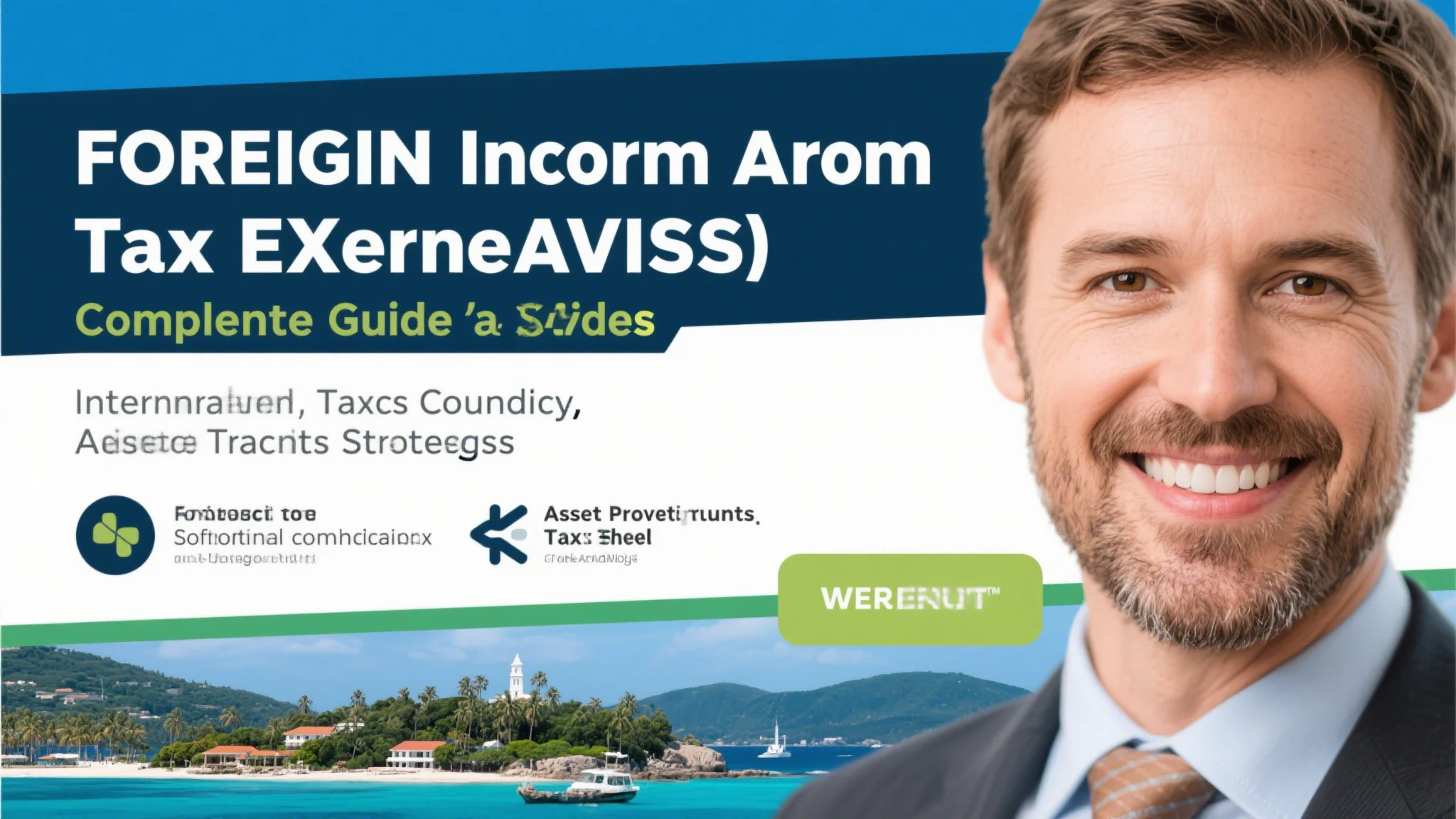
Foreign Income Tax Exemptions: A Complete Guide
Understanding Foreign Income Exemptions
The foreign income tax exemptions available to U.S. taxpayers can significantly reduce global tax burdens when properly utilized. The Foreign Earned Income Exclusion (FEIE) allows qualifying individuals to exclude up to $120,000 (2023) of foreign earnings from U.S. taxation. To qualify, taxpayers must meet either the Physical Presence Test (330 days abroad in 12 months) or Bona Fide Residence Test (established foreign residence). This exclusion applies only to earned income like salaries and wages, not passive income such as dividends or capital gains.
The Foreign Housing Exclusion provides additional relief for qualifying housing expenses exceeding a base amount. Taxpayers can also claim foreign tax credits for taxes paid to other countries, preventing double taxation. These provisions work together to help globally mobile taxpayers minimize their worldwide tax liability while remaining compliant with U.S. reporting requirements.
Offshore Financial Centers Explained
When offshore tax havens explained properly, they reveal legitimate wealth management tools rather than tax evasion schemes. Jurisdictions like Switzerland, Singapore, and the Cayman Islands offer political stability, strong privacy laws, and favorable tax regimes for international investors. These centers specialize in cross-border banking, asset protection, and investment vehicles unavailable domestically.
The key distinction lies between legal tax avoidance (structuring affairs to minimize taxes) and illegal evasion (failing to report taxable income). Modern offshore planning emphasizes compliance with international reporting standards like FATCA and CRS. Reputable jurisdictions now require economic substance – actual business operations beyond just paperwork – making sham arrangements increasingly difficult to maintain.

Global Tax Compliance Requirements
Maintaining international tax compliance involves navigating complex reporting obligations. The Foreign Account Tax Compliance Act (FATCA) requires foreign financial institutions to report U.S. account holders to the IRS. U.S. persons must disclose foreign accounts exceeding $10,000 via FBAR (FinCEN Form 114) and broader financial assets on Form 8938 when thresholds are met.
Controlled Foreign Corporation (CFC) rules attribute certain income from foreign companies back to U.S. shareholders. Passive Foreign Investment Company (PFIC) regulations impose harsh penalties on unreported foreign mutual funds. Tax treaties between countries prevent double taxation and may reduce withholding rates. Proper planning with international tax professionals ensures compliance while maximizing available benefits.
Asset Protection Trust Structures
Domestic asset protection trusts in states like Nevada, South Dakota, and Delaware provide strong creditor protection while allowing the grantor to remain as a discretionary beneficiary. These irrevocable trusts require independent trustees and strict adherence to formalities. The statute of limitations for challenging such trusts is typically two years, after which assets become extremely difficult for creditors to reach.
Offshore asset protection trusts in jurisdictions like Cook Islands or Nevis offer even stronger protections, as they don’t recognize foreign judgments. These trusts work best when established before liabilities arise, as fraudulent transfer laws may void last-minute asset transfers. Proper structure includes spendthrift clauses, anti-duress provisions, and careful selection of professional trustees with established track records.
Legal Tax Shelter Strategies
Sophisticated tax shelter strategies focus on deferral and rate arbitrage rather than outright avoidance. Captive insurance companies allow businesses to deduct premiums while building reserves in favorable jurisdictions. Puerto Rico’s Act 60 offers 4% corporate tax rates and 0% capital gains for bona fide residents. The U.S. Virgin Islands provides similar incentives through its Economic Development Program.
International pension plans can defer taxation until distributions begin, often at lower rates. Offshore variable universal life insurance policies offer tax-deferred growth and tax-free withdrawals up to basis. Private placement life insurance (PPLI) wraps investment portfolios in insurance policies for estate tax benefits. These strategies require substantial minimums and careful compliance with all reporting requirements.
Expatriate Tax Planning
U.S. citizens and green card holders working abroad face unique tax challenges. The FEIE and Foreign Tax Credit can eliminate double taxation, but careful planning is required. The Physical Presence Test requires meticulous day counting, while the Bona Fide Residence Test demands substantial evidence of foreign domicile. Tax equalization policies help employees working for multinational companies maintain consistent after-tax compensation across jurisdictions.
Totalization agreements prevent double Social Security taxation for expatriates. The Foreign Housing Exclusion covers reasonable expenses like rent, utilities, and even certain moving costs. Proper planning can help expatriates maximize these benefits while avoiding common pitfalls like failing to file required forms or miscalculating qualifying periods.
Reporting Foreign Assets
U.S. persons must disclose foreign financial accounts exceeding $10,000 aggregate value via FBAR (FinCEN Form 114). Form 8938 extends this requirement to broader financial assets under FATCA rules, with higher thresholds ($50,000-$600,000 depending on filing status and residence). Form 8621 reports PFIC holdings, while Forms 5471 and 8865 disclose foreign corporate interests.
Failure to comply carries severe penalties, including potential criminal charges for willful violations. The IRS Streamlined Filing Compliance Procedures allow non-willful violators to come into compliance, typically requiring three years of amended returns and six years of FBARs. Maintaining proper documentation and working with experienced international tax counsel is essential for compliance.
Integrating Global Strategies
Effective international tax planning combines multiple strategies tailored to individual circumstances. Foreign income exclusions coordinate with foreign tax credits to minimize worldwide taxation. Offshore trusts work alongside domestic asset protection structures. Business entities should align with personal holdings for comprehensive coverage across jurisdictions.
Regular reviews ensure continued compliance as laws evolve. The Common Reporting Standard (CRS) has expanded automatic information exchange globally. Economic substance requirements have tightened in traditional havens. Proactive adjustments maintain benefits while avoiding unnecessary risks. With proper planning, global families can legally minimize taxes while remaining fully compliant.


